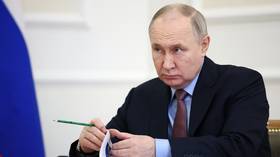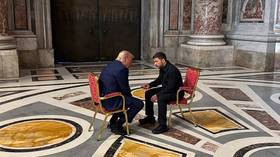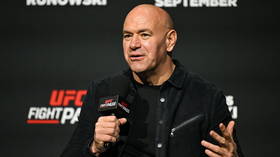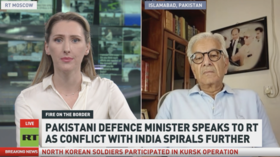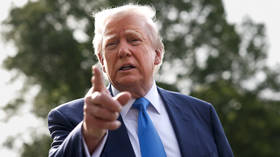Biden calls Putin ‘a butcher’
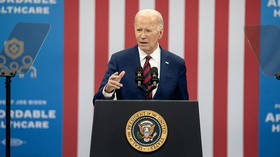
US President Joe Biden has disparaged his Russian counterpart Vladimir Putin for the second time in two months, publicly calling him a “butcher” in connection with the Ukraine conflict.
Biden made the jab while speaking at a campaign event in Raleigh, North Carolina, on Tuesday. He also advocated raising the average federal tax for America’s wealthiest from 8.2% to 25%, arguing that this would allow Washington to raise $400 billion over the next ten years.
“Imagine what we could do with that. We could fundamentally slash the federal deficit… We could do so many things – consequential – including finally making sure that we take care of Ukraine from that butcher Putin,” he said.
Biden also lashed out at the Russian president in late February, calling him a “crazy S.O.B.” He mentioned Putin while saying that the West must be wary of a nuclear conflict, but should pay even more attention to the danger posed by climate change.
At the time, Kremlin spokesman Dmitry Peskov suggested that Americans should be ashamed of a leader who indulged in such comments. “If the president of that nation uses that kind of language, that is shameful,” he said, adding that Biden may have been trying to emulate a “Hollywood cowboy” to appeal to domestic audiences.
Responding to the “S.O.B.” remarks, Putin stood by his previously expressed opinion that Moscow would be better off with Biden in the White House, adding that the US President’s words only prove his point. “It’s not like he could say ‘Good job… thank you for the helping hand’. We understand what is going on there, in terms of internal politics,” he explained.
This is not the first time that Biden has labeled Putin a “butcher.” The first instance dates back to March 2022, several weeks after the start of the Ukraine conflict. Peskov suggested that such offensive comments “narrow down the window for bilateral relations” at a time when Russia-US ties have sunk to a historic low.
In 2021, Biden also called Putin “a killer.” The Russian president retorted, “It takes one to know one,” following that remark.
